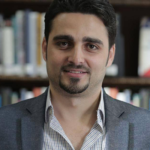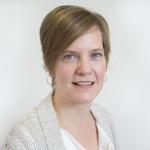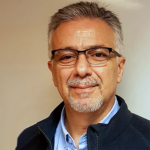
The Health Consequences of War
How can an understanding of the range of war’s effects on refugees allow public health and healthcare practitioners in the US to provide appropriate and effective care for wartime refugees in our communities?


Register
Course Information
- Audience: Public Health Professionals
- Format: Webinar
- Date/Time: Tuesday, March 29th, 2022
1:00 PM – 2:00 PM EST - Price: Free
- Length: 1 hour
- Credential(s) eligible for contact hours: Sponsored by New England Public Health Training Center (NEPHTC), a designated provider of continuing education contact hours (CECH) in health education by the National Commission for Health Education Credentialing, Inc. This program is designated for Certified Health Education Specialists (CHES) and/or Master Certified Health Education Specialists (MCHES) to receive up to 1 total Category I continuing education contact hours. Maximum advanced-level continuing education contact hours are 0. Provider ID: 1131137 Event ID: SS1131137_HCWIf you are not seeking a CHES/MCHES contact hours, if you complete the post-test and evaluation, you will receive a Certificate of Completion. The Certificate will include the length of the course.
- Competencies: Leadership and Systems Thinking
- Learning Level: Awareness
- Companion Trainings: None
- Supplemental materials:None
- Pre-requisites: None
About this Recording
As the war in Ukraine unfolds, the world is beginning to bear witness to the consequences being experienced by the Ukrainian people. This Conversation brings together experts who have studied other conflicts to discuss what we know about the long-term effects of war on the health of populations.
What you'll learn
At the end of the recording, participants will be able to:
- Describe the effects of war on the mental health of children, youth, and families and types of interventions that have shown to be effective in addressing those effects
- Describe the challenges to and lessons learned from providing nutritional support and medical care to persons in the Syrian conflict
- Discuss the impact of violence on health care providers and facilities in Ukraine, as well as historical experience of prior conflicts (Afghanistan, sub-Saharan Africa)
- Compare and contrast effects of conventional warfare (effects on battlefield relatively well understood) vs. “hybrid” warfare (effects on civilians and society; medical consequences unknown)
Moderator

Tiziana Dearing
@TIZIANA_DEARING
Host, WBUR’s Radio Boston
Theresa Betancourt
Salem Professor
in Global Practice,
Boston College
Abdulkarim Ekzayez
Doctor & Research Associate, King's College, London
Larissa Fast
Doctor, Humanitarian and Conflict Studies, University of Manchester
Amir Khorram-Manesh
Doctor & Senior University Lecturer, University of Gothenburg
Tiziana Dearing is the host of Radio Boston on WBUR. She’s been a commentator and contributor to WBUR for more than a decade, and has contributed to a number of other regional and national news outlets. Prior to joining the Radio Boston team, Tiziana was a professor at Boston College in the School of Social Work, where she taught social innovation and leadership. A longtime anti-poverty advocate, Tiziana also ran Boston Rising, a startup antipoverty fund to end generational poverty in Boston, and was the first woman president of Catholic Charities for the Archdiocese of Boston. She’s won a number of awards in the city, including a Pinnacle Award from the Greater Boston Chamber of Commerce and Boston Business Journal’s 40 Under 40.
Subject Matter Experts
Theresa S. Betancourt is the inaugural Salem Professor in Global Practice at the Boston College School of Social Work and Director of the Research Program on Children and Adversity (RPCA). Her primary research interest is to understand the protective processes that contribute to risk and resilience in the mental health and development of children and adolescents facing adversity in a variety of cultures and settings. Dr. Betancourt has led several initiatives to adapt and test evidence-based behavioral and parenting interventions for children, youth, and families facing adversity due to poverty, illness, and violence. Dr. Betancourt additionally focuses on strategies for scaling out these interventions using implementation science approaches. She is Principal Investigator of an intergenerational study of war/prospective longitudinal study of war-affected youth in Sierra Leone. Dr. Betancourt has also developed and evaluated the impact of a Family Strengthening Intervention for HIV-affected children and families and is leading the investigation of a home-visiting early childhood development (ECD) intervention to promote enriched parent-child relationships and prevent violence that can be integrated within poverty reduction/social protection initiatives in Rwanda. In the US, she is engaged in community-based participatory research on family-based prevention of emotional and behavioral problems in refugee children and adolescents resettled in the U.S. through the collaborative development and evaluation of parenting programs led by refugees for refugees that can be linked to prevention services involving refugee community health workers. Dr. Betancourt has served on the advisory board for the 2021 UNICEF State of the World’s Children report, titled, “On My Mind: Promoting, Protecting, and Caring for Children’s Mental health.” Additionally, she has advised Amnesty International on a key advocacy report on mental health in Sierra Leone entitled ““They are forgetting about us:” The Long-term mental health impact of war and Ebola in Sierra Leone.” Dr. Betancourt serves on a high-level World Health Organization Mental Health Gap Topic Expert Group (TEG), the Lancet Commission on Gender Based Violence and Maltreatment of Young People, as well as serve as a thematic advisor for the United States Institute of Peace (USIP) for a series of workshops on Violent Extremist Disengagement, Reconciliation, Trauma Recovery. Dr. Betancourt has been profiled in the New Yorker, National Geographic, NPR, CNN.com, and in an interview with Larry King on the program, “PoliticKing.”
Dr. AbdulKarim Ekzayez is a Syrian medical doctor specializing in epidemiology and health systems. His current work at King’s College focuses on health systems strengthening in conflict areas and on building the research and policy capacity of the health sector in conflict-affected areas of the Middle East. He is currently a lead applicant for a large project funded by the National Institute for Health Research called “Research for Health System Strengthening in Northern Syria R4HSSS”. He is also involved in several other projects and research with other academic and policy institutes including LSHTM, AUB, Chatham House and others. His research focuses on issues related to health system building in conflict settings and early recovery, health care protection challenges, and the health impact of conflict. In 2013, Karim was training to be a neurosurgeon when his residency was interrupted by the war. He joined Save the Children in North West Syria, where he led the health response until 2017 – helping build the primary health care system, restarting routine vaccinations, and supporting the rebuilding of the health system in northern Syria using a bottom up approach. Dr. Ekzayez is a regular contributor to several medical and civil society institutions in Syria, and has been active in advocacy for Syria through media and conferences. He is a trustee member of two NGOs, Shafak and Refugee Trauma Initiative and a managing director of the Syrian British Council which is a lobbying and advocacy body in the UK. He received his MD from Aleppo University and his MSc from London School of Hygiene and Tropical Medicine. Also, he completed a one-year residential fellowship on leadership in international affairs from The Queen Elizabeth II Academy for Leadership in International Affairs at Chatham House; and another one-year fellowship in international cultural relations from the Institute for International Cultural Relations at The University of Edinburgh. He is also pursuing his PhD in public policy from King’s College London.
Professor Fast is working at the intersection of the worlds of academia, policy, and practice. Her research addresses two fundamental problems: how best to protect civilians, particularly those who intervene in violent conflict, and how to make such intervention more effective, ethical, and responsive to local needs and circumstances. In addition to her book Aid in Danger: The Perils and Promise of Humanitarianism, she has published numerous peer-reviewed articles and policy reports. Professor Fast worked for both government and non-government agencies as a project manager, consultant, and analyst, and provided training to individuals and organizations in peace building and conflict analysis. Prior to her current position at Manchester, she was a Senior Research Fellow at ODI’s Humanitarian Policy Group, a Fulbright-Schuman Research Scholar (2016-2017), and a AAAS Science and Technology Policy Fellow (2014-2016) at USAID’s Global Development Lab. She has also held faculty positions at the Kroc Institute at the University of Notre Dame (USA) and Conrad Grebel University College (University of Waterloo, Canada).
Dr. Khorram-Manesh serves as university lecturer in surgery with particular focus on disaster medicine, mass casualty management and trauma. He is also a Visiting professor at numerous universities, currently the National Institute of Emergency Medicine of Thailand and Mahidol University in Bangkok. He has published over 100 papers, book chapters and books. His current research interests are in multiagency collaboration in emergencies, introduction of the Flexible Surge Capacity concept, Civilian-Military collaboration and its related challenges, development of emergency medicine in middle and low-income countries, hospital safety in disasters and public health emergencies. He is equally active in introduction of educational initiatives such as simulation trainings and exercises within the field of disaster and emergency medicine.
Registration
Select the Enroll Me button below to register for this recording. If you have any trouble accessing the recording, contact support@nephtc.org.
Acknowledgement: This project is/was supported by the Health Resources and Services Administration (HRSA) of the U.S. Department of Health and Human Services (HHS) under grant number UB6HP31685 “Regional Public Health Training Center Program.” This information or content and conclusions are those of the author and should not be construed as the official position or policy of, nor should any endorsements be inferred by HRSA, HHS or the U.S. Government.

